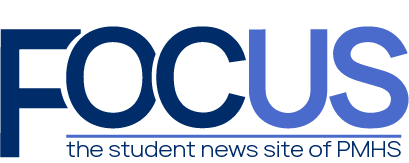Forward the message: Student personalized Google domains no longer permitted
As school systems increase the usage and progressive application of technology to connect with students, inquiries appear around the intersection of data created for education and the discretion in which students use their devices.
The personalized Google domain has terminated access for students when used with school-certified Wi-Fi and Chromebooks. Limited personal use of district email is often permitted as long as it doesn’t impose any tangible costs for the district.
Whether emails and other digital communications are made part of student records is important for multiple reasons. Commonly, state law may require schools to maintain student records for the time enrolled in high school. In result, this implements account and security implementations for Perry Meridian to consider.
However, the issues linked with personal emails do not only remain with the required funds and warranted use of teachers’ and administrators’ time. This dilemma arrived unannounced, stirring confusion and frustration for students who rely heavily on access to their personal accounts.
Comparatively, in the effort to minimize the distractions and necessity for technological repairment funds for dysfunctional Chromebooks, this denied access to an individual’s account has installed obstacles for students like senior Alexander Mervar.
When the Perry Township Education Center initiated the restriction, Mervar was one of the first students to notice. For the last couple weeks, Mervar has been in contact with the Director of Technology in Perry Township, Matthew Willey, hopes to resolve some questions with his personal account.
“This is a situation for me because during college applications, the use of my personal Gmail is critical,” Mervar says. “Without it, I cannot succeed in applying.”
Many of his other senior peers are undergoing similar frustrations throughout their college processes. At the end of the school year, seniors’ school Gmail accounts are wiped, removing all access to documents, slides and emails conducted during their high school careers.
Senior students have been starting the transition to save files by switching to their personal email accounts.
Willey quickly responded that these types of security and resolutions tend to have “ a delicate balance” to them. He expounded that this form of monitoring was a new setting Google created to eliminate a bone of contention with extensions and filtering and monitoring bypass.
The school email account allows access to educational google apps, which installs online file storage and the opportunity to share files safely and with ease between staff and students.
With the increased freedom of online access, the school email account is monitored.
“Unfortunately, there is no great middle ground,” Willey says. “Every fix for something seems to create an issue for something else.”
Mervar additionally acknowledges the limitations in his AP Research class when attempting to contact professors for guidance in his research topic over rhetorical critical analysis of America’s version of crime in film.
“As a student in AP Research, all of my interactions with experts in my respective field is through my personal gmail account,” Mervar states.
He has difficulty with timely responses to his professors in the field of his research paper during his second period course.
English and AP Research teacher Stefanie Davis encourages her students to reach out to the school’s administration to better understand the situation.
“I’ve discussed the importance to reach out to professional help in their fields if they’re interested in doing so,” she says. Davis is aware of the distraction personal accounts and technological loopholes apparent in her classroom yet doesn’t understand why the troublesome of some students has affected the academic progress of others.
“It’s a larger issue than you’d think,” Davis says. “Many students log into their personal accounts to watch movies during school and get past the DyKnow system.”
DyKnow is a program used to monitor students’ screens and minimize classroom interferences.
Media Specialist and teacher Diane Turpen has acted as a liaison between the Director of Technology and a selective group of the high school’s student body. Turpen has received a lot of questioning to what she can do to fix the situation, but she clarifies that it wasn’t her decision to make.
“There are clever kids that find loopholes around the systems,” Turpen says. “Security should have been tighter to begin with in that regard.”
One loophole bringing in a personal device with a hotspot. Turpen comments on the amount of time and funding spent on fixing computer defects, especially with mandatory Evaluate practice tests and lockdown browsers.
“This would cause teachers to stop the lesson and occasionally have the IMC call tech help to figure out lots of students were logged into their personal accounts,” Turpen says.
Nonetheless, it isn’t just student Gmail accounts that have affected. Teachers and staff have adjusted to small restrictions, as well.
Staff member Catherine Sheff noticed that she can’t glide from personal to school administered accounts anymore.
“I’ve had to be more cognizant about what I’ll be working on,” she says. “I’ve noticed myself connecting from a personal account less often then from my work one.”
As teachers and students have adapted to the shift between reformed entry with Gmail, there has been little discussion to a resolution and what happens next.
For the most part, the new restriction hasn’t created panic , but the concern for students who solely rely on internet access from the issued Chromebook hasn’t been acknowledged.
“Many low-income individuals are not able to resort to their own personal device due to the fact that they may not have one,” Mervar says. “Thus, they were left behind in the college application process and academic projects.”

